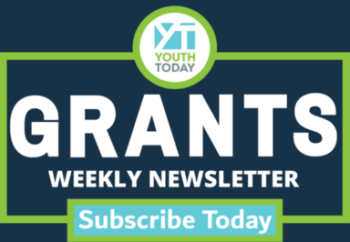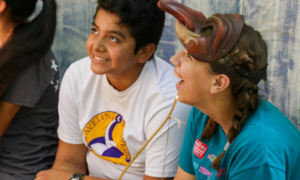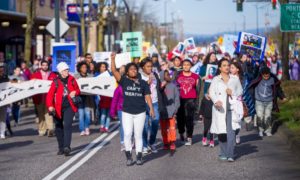In April 2010 we announced that the Robert Bowne Foundation (RBF) would be spending out our funds and closing our doors by the end of 2015.
The following is an excerpt from our letter announcing our plan for the spend out:
“We have sketched out a general plan for spending out the Foundation’s assets, and over the next year many of you will be invited to help us develop a strategy that we hope will have maximum impact in improving programs and the field.
“The primary goals that underlie our general plan for spending out will be familiar to you. We will continue to build organizational capacity and promote sustainability as we have done over the past 20 years. And, we will evaluate and learn from our years of experience and documentation of OST programs. However, during the final three years of our grantmaking we will focus our resources on a smaller group of our long-term grantees that represent the Foundation’s core principles that literacy: happens in community; develops through active engagement; is a means to self-determination; and is a fundamental part of being human in 21st Century America.
Our general plan is structured in three stages:
► Stage I: Through a series of facilitated meetings, focus groups, and interviews with current and past grantees and other partners, we will develop the Foundation’s strategy to achieve our goals.
► Stage II: Implementation of that strategy which will last about four years.
► Stage III: In the final administrative year we will make our final grants, and remain in touch with our partners to evaluate and learn from our process.
“During the next five years we will also establish an archive that will house our documents and be a repository for current and future youth practitioners to continue to learn about quality OST programming.
“The Foundation is open to your ideas and strategies for our spend out plan. We will create opportunities such as focus groups for you to share those ideas with us. Some ideas that we have for consideration and discussion are:
► Providing stable core grants for three years;
► Funding management professional development of staff; and
► Training in evaluation and advocacy.
“Although we all approach this transition with mixed feelings, we are committed to creating a process that has a positive and long-lasting impact.”
Our Legacy
In spring 2010 we engaged a team of researchers to study and describe the RBF legacy — the impact of our work over the past 25 years.
The researchers reviewed documents, observed our grantees, and talked with all our stakeholders, from board members to young Out-of-School Time (OST) program participants. They developed case studies that we shared through written reports and through the Youth Today OST Hub.
As part of our original plan to build OST capacity where it’s needed, we focused our final three years of grantmaking on giving substantially larger grants to a smaller group of our independent community-based programs, long-term grantees that embrace our core principles. Due to the funding environment being harsh with less and less funding being available for these programs, we decided to make grants to a larger pool of our long-term grantees. These grants were larger than our past grants but smaller than we planned.
We also continued to fund management and programmatic professional development and technical assistance, as well as advocacy training through the Afterschool Alliance. Grantees continued to participate in our networking meetings and in such offerings as The Julia Palmer Library Development and Literacy Support Project, designed to help programs, over an eight month period, to meet children’s literacy needs without being more school after school.
RBF funded the Community Resource Exchange to offer the Fundraising Action Learning Series. In six sessions participants learned to diversify their funding base, tap all six components of effective fundraising, research grants, write successful grant proposals, and develop an individual donor program.
In Conclusion
In a 2002 Afterschool Alliance nationwide poll, 90% of the registered voters polled supported afterschool programs. These voters wanted children to be involved in the safe and enriching activities that quality afterschool programs provide. However, afterschool programs were at a pivotal point in their history. More than ever, it was agreed that afterschool programs were necessary for positive youth development. And, increasingly, programs were being held more accountable. However, most programs had not been provided with the resources — time, staff or funding — to demonstrate their effectiveness and value. Furthermore, as a result of our economic climate, the sources of public and private funding that could provide even basic support for these programs were tenuous.
Through its direct service grants, technical assistance, and research and dissemination activities, the RBF supported the field of afterschool education in documenting and disseminating their practices in order to provide critical information to a wider audience-programs, funders, and policymakers. Our ultimate goal was to increase access to youth-centered, quality out-of-school programs for all young people. By spending-out the RBF’s assets we believe that we did our best to accomplish that goal.
LINKS
- Of Men and Dreams (1975) Stanley
- The Third Arena (1999) Kangisser
- Legacy of the Robert Bowne Foundation (2012) Hirota and Schwabacher




















